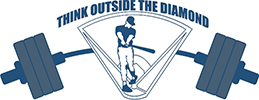
If you’re struggling with an addiction to drugs or alcohol, you’re not alone. Millions of Americans deal with some form of addiction in their lifetime, and many of them struggle to get the help they need to get clean. If you’re in recovery, you’re already ahead in the game, but physical fitness can help you get to the finish line. Here are a few ways fitness can help.
Exercise Can Get Rid of Stress
We all seem to be constantly under stress. From work to family to social pressure, it’s enough to make even the strongest person feel overwhelmed. When you’re in recovery, stress can feel amplified and can even be a trigger for substance abuse. But if you’re thinking of getting into fitness, you may be on track to burn some of that stress off. The trick, of course, is to find the ideal workout for your needs. Exercise is a natural stress reliever in a few different ways. You get to focus on your workout instead of stressful situations. Regular exercise will also help you sleep better at night, which is essential in preventing stress and other health-related issues.
Workouts Will Build Your Confidence
If you’ve lived with an addiction for a while, chances are you’re not feeling the best about yourself. Addiction can cause physical and mental declines that tend to shred your self-esteem. By taking care of your body with exercise, you can get some of that confidence back. As you see the positive changes in your body, you’ll feel more in control of your life. Exercise also helps your brain pump out endorphins, chemicals that are essential for keeping you feeling great.
Fitness is Simple to Fit Into Your Day
You may think a fitness plan requires plenty of extra time in your day. It is possible, however, to get fit without throwing your schedule off track. All you need is an hour or less five days a week, and a mix of cardio and strength training, to get some real results. Take a brisk walk to get your heart pumping, bike to work, or go for a quick jog. You can even try some in-home workouts that combine the benefits of cardio and strength training together. Just pick up a couple of sets of free weights and get your workouts in whenever you have a few moments to spare at home.
Eating Right Will Help You Conquer Your Goals
You can’t build a better body if you’re still fueling it with junk. Clean up your diet to help yourself stay strong and fit during recovery. Get plenty of leafy green vegetables into your meals each day. Switch to complex carbs, like sweet potatoes and brown rice, and toss in some healthy proteins. Looking to put on some muscle? Then make sure you’re eating enough! Your body can only build lean muscle when you’re properly nourished.
Exercise Can Bring Positivity Into Your Life
You already know that working out can boost your confidence and relieve stress. But fitness can bring other positives into your life as well. You can practice yoga to maintain flexibility and learn to live in the moment, a proven path to peace. If you’re looking to make some new friends, exercise can help as well. You’ll meet other people in the gym, at class, or even out on the trail. You can even enroll in some group outings to really make some positive social connections.
Getting Healthy Can Lead to Long-Term Happiness
Fitness is a good way to enhance your recovery. But being healthy doesn’t have to stop once your sober. Take care of your body with fitness and take care of your mind with positive mental health care. Mental health is just as important as physical health when it comes to your happiness. Stick to those health goals and make staying in shape a lifelong commitment.
Addiction takes such a toll on your body and mind. Recovery is a major step in the right direction, but physical fitness can help you go the extra mile. So set some goals, pick up some weights, and start getting into shape to feel better faster.
Guest Post By: Susan Treadway; Rehab Holistics
Photo Credit: Pexels
